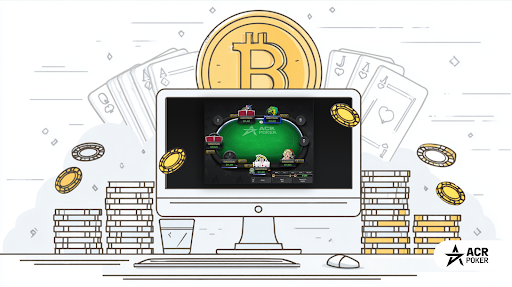The rise of anonymous and crypto casinos has reshaped the landscape of online gambling. In a world where personal details are increasingly valuable yet vulnerable, these platforms offer privacy, fast transactions, and global accessibility. Yet anonymity, while liberating, can also create risks. Without typical verification checks and traditional oversight, players must proactively defend their interests. Setting clear boundaries in advance becomes crucial for responsible gaming and safeguarding your finances, identity, and well-being.
As digital gambling accelerates, more players are seeking venues that prioritize privacy. But experts warn: the absence of regulatory guardrails demands greater individual vigilance. Whether you’re new to crypto casinos or a seasoned player, documenting specific boundaries before logging in isn’t just wise—it’s essential.
1. Set a Strict Budget Cap Before Deposit
One of the leading pitfalls of online casinos—anonymous or not—is impulsive spending. The nature of crypto wallets and seamless deposits can lull players into wagering more than they can afford.
Why Budgeting Is Key in Anonymous Casinos
Traditional online casinos enforce deposit limits, but anonymous platforms place the responsibility squarely on the user. Setting a maximum daily, weekly, or monthly budget—written down and visible—acts as a constant reminder and safeguard.
Industry consultants consistently cite budget discipline as foundational:
“In the absence of system-enforced limits, self-imposed boundaries become your first and best line of defense,” remarks Sarah Ingram, a responsible gaming advocate.

Practical Steps:
- Decide on a clear dollar (or crypto) value based on disposable income, not desire.
- Commit to never exceeding this limit—even if chasing losses.
- Consider using separate wallets for gambling to avoid overdraws from personal savings.
2. Define Maximum Single Bet and Session Limits
Beyond overall budget, determining how much you’re willing to risk per bet and per session protects against rapid, high-stake losses.
Breaking Down Bet and Session Boundaries
Anonymous casinos often lack integrated tools for “cooling off” or bet caps. By pre-defining session durations and single-bet maximums, you maintain both perspective and momentum.
Example Scenario
A player might resolve: no single bet over 1% of their deposit, and no more than two hours per session. By writing it down, commitment is strengthened, especially amidst the emotional highs and lows of gaming.
Tips for Enforcing Limits:
- Use smartphone timers or calendar reminders.
- Document guidelines next to your computer or on your phone for every session.
- If available, leverage third-party gambling management apps.
3. Clarify How Much Anonymity Matters to You
Anonymity is a spectrum—not all “anonymous casinos” are equally private. Some ask for an email; others require none, but all crypto transactions are traceable on public blockchains.
Assessing Your Privacy Needs
Ask yourself: Why do you want privacy? Is it for discretion, or a deeper concern about digital footprints? Write down your comfort level and boundaries before divulging any personal information, even for bonuses or support.
Real-World Context
Many platforms entice users to reveal an email or phone number for bonuses. Always weigh the value of the incentive against the privacy cost.
Best Practices:
- Set a hard line on what personal data—if any—you will provide.
- Consider using privacy-focused emails or VPNs.
- Remember: “Anonymous” transactions are pseudonymous, not invisible.
4. Research Service Legitimacy and Fairness Protocols
Anonymous casinos inhabit a gray regulatory zone. Some boast fair games and fast payouts; others are opaque or outright predatory.
Due Diligence Steps
Before even registering, set a rule to verify:
- Provably fair gaming mechanisms (like cryptographic fairness proofs).
- Availability of independent audits or third-party certifications.
- Real-world player reviews and trusted forums.
“Reputable crypto casinos are transparent about their technology, payout speed, and security—a lack of clear information should raise serious red flags,” notes blockchain gaming analyst Luis Romero.
Checklist for Safety Boundaries:
- Only use platforms with verifiable fairness systems.
- Avoid casinos without clear ownership or testimonials.
- Never deposit funds simply because a casino is new or promises high bonuses.
5. Decide How You’ll Handle Winnings—Withdrawal Rules
Winning is exhilarating, but in anonymous casinos, transparent withdrawal processes can vary dramatically. Some sites expedite crypto withdrawals; others delay or even restrict access without explanation.
Setting Withdrawal Boundaries
Document a rule to withdraw your principal or a designated percentage after any significant win. Decide in advance how much to leave for further play, and when to walk away.
Case Example
Players often lose winnings because they keep cycling funds through new bets. Setting—and sticking to—an exit rule secures your gains.
Action Steps:
- Define what qualifies as a “significant” win worth withdrawing.
- Make immediate withdrawals back to a secure personal wallet after hitting your goal.
- Reassess limits regularly, especially after a large upswing or downswing.
6. Commit to Emotional Health and Time Outs
Gambling, particularly in private and frictionless environments, can quickly spiral. Without social cues or self-exclusion programs, emotional boundaries must be intentionally enforced.
Recognizing and Preventing Problem Play
Write down early warning signs—irritation, chasing losses, neglecting other activities. Commit to timed breaks or account “rest periods,” whether using browser extensions, calendar blocks, or self-imposed bans.
Framework for Emotional Boundaries:
- List clear signs of strain or compulsion.
- Decide when and how to implement time-outs (for example, after consecutive losses or loss of enjoyment).
- Reach out to support groups or confidential hotlines, many of which now cover crypto gambling.
Conclusion: Proactive Limits Ensure Safe and Enjoyable Play
Anonymous casinos offer unique opportunities for privacy and accessibility—but not at the expense of personal security or wellbeing. Writing down and adhering to budgetary, betting, privacy, safety, withdrawal, and emotional health boundaries is not a sign of distrust, but of wisdom. The most successful anonymous casino players are, above all, disciplined and deliberate. Setting—and following through—on clear boundaries fosters an environment of enjoyment, rather than regret.
FAQs
What makes anonymous casinos different from traditional online casinos?
Anonymous casinos typically do not require personal identification and often operate with cryptocurrencies, allowing for faster transactions and increased privacy.
How can I make sure an anonymous casino is legitimate?
Look for provably fair protocols, independent audit certificates, transparent payouts, and genuine player reviews. Avoid sites that hide their operators or have inconsistent reputations.
Can setting my own boundaries really help with responsible gambling?
Absolutely. Documenting and pre-committing to specific spending and playing rules helps prevent impulsive decisions and reduces risk, especially where external controls are limited.
Is it safe to provide any personal details to an anonymous casino?
Decide in advance what, if any, information you’re willing to share. Many players choose burner emails and strong password hygiene to preserve anonymity.
How should I approach withdrawing my winnings from these platforms?
Set withdrawal rules before starting to play, such as withdrawing your original deposit after a win and only risking profits, to maximize your long-term financial safety.
What should I do if I start to feel out of control while playing anonymously?
Immediately implement a self-imposed break and seek support from online communities or professional helplines. Recognizing early signs of unhealthy play is crucial for your wellbeing.














Leave a comment